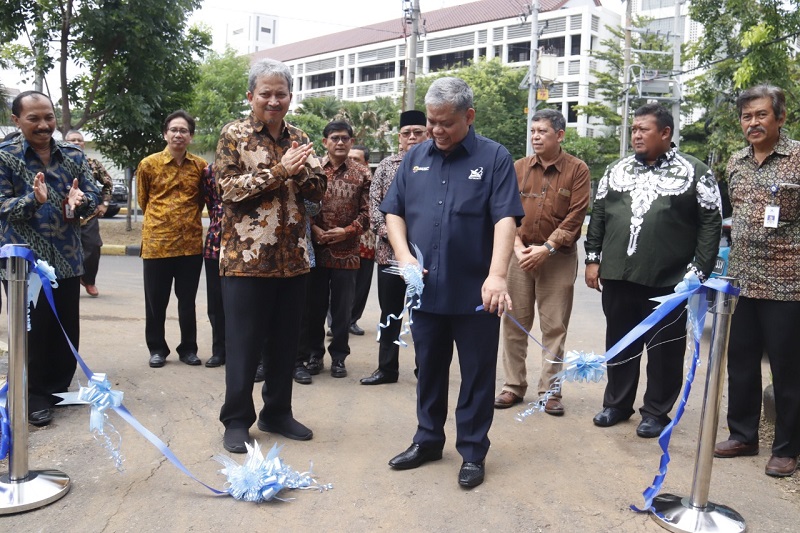
The Institut Teknologi Sepuluh Nopember (ITS) Surabaya has taken a serious step towards becoming a research university with the inauguration of the University’s Science Techno Park and Incubator facilities.
According to a recent press release, the inauguration of the Science Techno Park also marked its operational readiness to support research and innovation.
Moreover, it will also serve as a bridge between higher education institution research and the industrial world.
The idea to build the Techno Park began in 2016 with the help of the Ministry of Research, Technology and Higher Education.
At that time, the Techno Park’s masterplan included three study centres covering seven fields of study in the University.
These study centres are the Maritime Centre, the Creative Centre, and the Automotive Centre.
The University’s Vice Chancellor of Innovation, Cooperation, Alumni and International Affairs explained that with the inauguration of the Science Techno Park, the researches undertaken by the University will now be developed in the form of a technology-based company.
Hopefully, this will create an innovation ecosystem involving the academy, start-up companies, the government, and the community.
Even before the Science Techno Park was built, the University has proven its capability.
Insufficient infrastructure did not hinder them as the University was still able to produce a total of 124 innovative products from students and lecturer researches within a year.
The General Director of Institutional and Higher Education Science Technology commended the University, saying it is more than capable to build the Science Techno Park with the innovations it has created from its researches.
Outputs coming from the Science Techno Park will be in the form of a start-up company, as earlier stated, having good economic development.
The label of being a start-up company will be given only to companies that have turned their researches into prototypes.
The Techno Park will not only support products based on innovation, but also those existing products that have been modified and improved on.
Hopefully, another centre will be produced eventually to add to the current creative, maritime and automotive centres.
The University may eventually explore another prospective field that may be supported and promoted by the Science Techno Park.
A challenge that the University may face in the future is whether the products and innovations that they have produced will be commercialised.
It should not be forgotten that aside from the innovations from the Science Techno Park, there are still a large number of products from the dissertations of students that have yet been commercialised.
Meanwhile, the University signed a Memorandum of Understanding (MOU) and a Memorandum of Agreement (MOA) with the Mokpo National University (MNU), in South Korea, for a joint-degree cooperation program.
According to a recent press release, the collaboration will be between the University’s Naval Architecture and Shipbuilding Engineering Department and the MNU’s Naval Architecture and Ocean Engineering Department.
Students who will take part in the joint-degree program will be prepared for the challenges of the Industrial Revolution 4.0 and will help advance the shipping industry in Indonesia.
They will be given the opportunity to learn about ship production and automation. The students will spend three years of lectures in the University, and then one year in Mokpo National University.
















